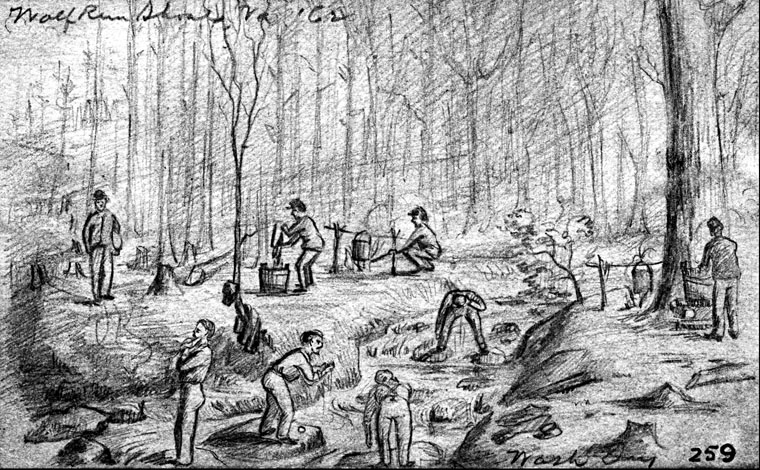"Dear parents I now seat myself to write you a few lines to let you know that we are in the land of the living. Wilber is doing well, yet he thinks that round poles are not a very soft bed to lay on for a week or so. Willard Wait is pretty sick to day but I think that he is doing well. ...
"Steven has gone to the old camp to day his business is to have the sick ones there sign the pay roll, and he is to meet the pay master at the court house and get their pay then cary it back to them. As quick as he gits that done he is going to Washington to get his uniform and will proboly be back day after to morrow Some time in the course of the day.
"... To day there was two hundred men gone out about three miles towards the station to codaroy the road which is so muddy that they could not get along. One may talk of mud when he is in Vermont but let him come out into Va. and travel here as the going has been for the last ten days and I will bet that let him get back to Vermont again and he will not think of mud for as much as two ro three days. ... the day is warm and pleasant and the snow has mostly disapeared leaving it muddy beyond all discription. ~ Jabez H. Hammond, West Windsor, age 20, Sgt. Co. A, 12th Regt, Letter No. 24
"... To day there was two hundred men gone out about three miles towards the station to codaroy the road which is so muddy that they could not get along. One may talk of mud when he is in Vermont but let him come out into Va. and travel here as the going has been for the last ten days and I will bet that let him get back to Vermont again and he will not think of mud for as much as two ro three days. ... the day is warm and pleasant and the snow has mostly disapeared leaving it muddy beyond all discription. ~ Jabez H. Hammond, West Windsor, age 20, Sgt. Co. A, 12th Regt, Letter No. 24




